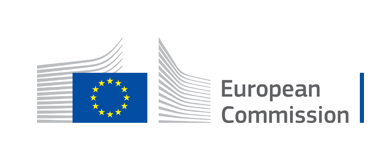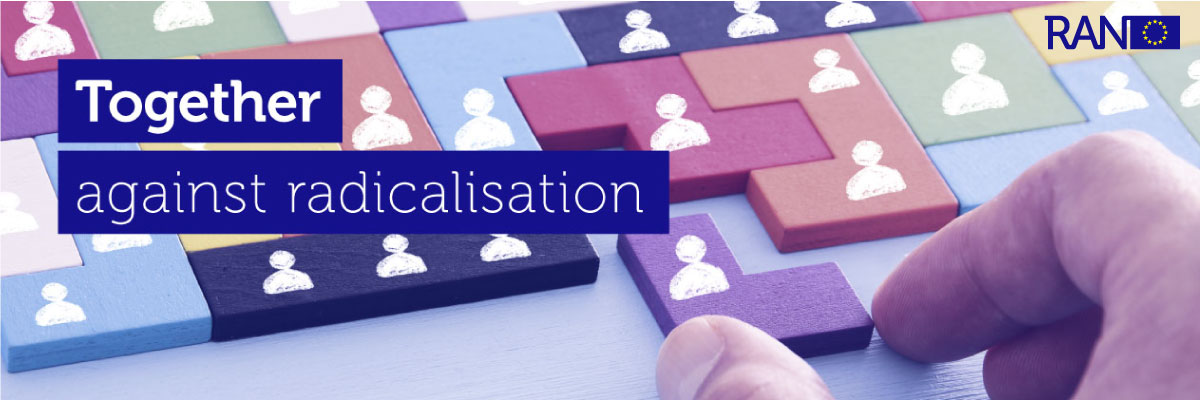RAN C&N Communications after an attack and the role of media
(Lisbon, 1-2 October)

This Expert Meeting examined the strategic communications environment following a terrorist attack, reviewing also how traditional and social media report on it. Experienced (first-line) communications experts presented many of the dos and don’ts as regards the formulation of a communication strategy.
For instance, in the aftermath of an attack, the media should start reporting and providing information as soon as possible. This includes information explaining, in a proactive manner, the standard procedures of first responders.
This is to show that authorities are dealing professionally with the attack even if details are not available. Another tip is to keep messages factual, reassuring and empathetic.

RAN EDU-H&SC ‒ Troubled Refugee children in the classroom
(Zagreb, 3-4 October)
The meeting attracted a wide range of professionals (teachers, child psychologists, social workers and professionals working at reception centres for newly-arrived refugees) who shared their experiences and discussed difficulties faced when helping to safeguard refugee children such as the cognitive effects of psychological trauma.
The discussion focussed on how to forge efficient multi-agency collaborations that will help safeguard vulnerable refugee children in schools across the EU.
There was a wide consensus that teachers should be able to recognise problematic behaviour, address its manifestations and prevent these from escalating into hatred, or even violence, towards the host society. Parts of an existing teacher training session were delivered.

RAN YOUNG Academy session 4 ‒ How to professionalise your initiative? (Berlin, 21-22 October)

The topic of the meeting was professionalisation. The filmmaking workshop they received was in the light of professionalisation (professionalising the communication on your initiative). At each meeting we also include an inspiration part.
As such, RAN Young participants visited the Berlin Wall Memorial to see how a memorial can contribute to the general awareness and the consequences of segregation, polarisation and radicalisation.
They looked into the communication strategies within this memorial (how to do testimonies, storytelling, film and how to set up these different materials to help create awareness about the history of division and preventing future violence). They found inspiration in how to use this in their own PVE work.
About the film, participants discussed how the medium of film contributes to preventing radicalisation and creating awareness on these issues. At a time when recruitment is taking place both offline and online, one of the key questions is how to create alternative narratives and distribute these to vulnerable target audiences.

RAN EXIT ‒ Gender-specific approaches in Exit work
(Rome, 22-23 October)
Participants discussed whether there is a need for a gender-specific approach in Exit programmes, taking into consideration the growing number of women joining extremist groups.
First-line practitioners exchanged views about the gender roles and stereotypes that exist in a variety of extremist groups (far-left, far-right, Islamist, eco). There was an agreement that each case, no matter the extremist ideology, should benefit from an individual approach.
However, there are gender-specific questions that need to be answered concerning women’s role and experiences. General recommendations were provided to assist Exit workers to build trustful relationships with their clients by using the ABDEL model (Analyse-Bond-Decrease-Explore-Legitimise) to address the Needs (sense of belonging), Networks (family, city etc.) and Narratives (frame of references). Female-specific recommendations were also discussed.

RAN H&SC ‒ Alienation, Identity and Intercultural Working - Inclusive intercultural health and social care services (Helsinki, 23-24 October)
Social workers and health professionals working with migrants and refugees came together to discuss how to safeguard this vulnerable population from the push and pull factors leading to radicalisation or violent extremism. They focussed on acculturation and the role of the host, as well as identity needs, prejudice and discrimination and access to basic (mental) healthcare. The cultural competences of professionals were also discussed.
The 3N model (Needs, Network, Narrative) was introduced as a frame of reference to understand the process of (social) alienation which may lead to violent extremism. It explains how the loss of or search for personal significance is a motivator for radicalisation. Therefore, it is of vital importance for health and social care professionals to work on someone’s identity needs. In an inter- or multicultural context this requires training, curiosity, sensitivity and intervision for and from health and social care professionals.

Member States’ Workshop on Islamist Extremism (Rome, 24-25 October)
Representatives of participating member States (officials from the ministries of interior and education, police, prison and probation officers) discussed how governments should deal with and respond to local, regional and national manifestations of Islamist extremism. The local context, strategy and challenges faced by each MS were presented and discussed.
Guest and expert speakers guided participants through three specific topics: online propaganda and latest trends, Islamist extremism post-Daesh and rehabilitation of foreign terrorist fighters (FTFs) with a specific focus on women and children. It is worth noting that several MS reiterated the importance of a nuanced and long-term approach when dealing with child returnees.
The realisation that one is the child of a terrorist fighter could cause new trauma and must be considered when formulating a reintegration and rehabilitation programmes aimed at child returnees.

Plenary (Brussels, 30 October)
Some 100 RAN participants from all Working Groups came together to reflect on past achievements and to discuss a course for 2020 and beyond. In an interactive session, attendees discussed the issues deemed important (based on break-out sessions before the Plenary discussions and the findings of a recent survey). The list includes far-right extremism, Islamist extremism, gender and building resilience.
The break-out sessions, which were organised by working group, delved into the future cooperation possibilities between different constituencies. The rehabilitation of violent extremist offenders (P&P), the blending of online and offline communications when addressing youngsters (C&N), restorative justice (RVT) and extracurricular activities being infiltrated by extremist ‘influencers’ (EDU) are several topics highlighted during these break-out sessions. During the Plenary session which followed, the dissemination of RAN deliverables was discussed.
Participants identified this as an area needing critical reassessment (as regards the most suitable format of communication). Participants also discussed alternative forms of knowledge exchange, such as job shadowing and increased cooperation with Member States. The outcomes of the Plenary will feed into the advice on the Annual Activity Plan for 2020 as well as the ex post paper, which will be published shortly.

High-Level Conference (Brussels, 4 November)
The RAN High-Level Conference centred around the screening of the 2019 Belgian drama Le Jeune Ahmed (English: Young Ahmed). The movie, which premiered in Cannes in May of this year, is about a teenager who becomes radicalised. Following the screening, the film’s directors, Jean-Pierre and Luc Dardenne, spoke about the film. Together with journalist Eddie Caekelberghs, they answered audience questions about their depiction of Ahmed’s (de)radicalisation process.
Some 115 people attended the High-Level Conference. They included RAN participants, Member States representatives, members of the Steering Board on Radicalisation and representatives of international organisations. Groups made up of both policymakers and practitioners discussed the film and how they would approach similar cases of radicalisation. Some stated that the measures taken in the movie do not reflect how they would have reacted. Nevertheless, Le Jeune Ahmed served as a powerful conversation starter in schools and communities.
In small groups, they discussed the film’s four main themes: education, family and community, deradicalisation and disengagement, and ideology. The education group highlighted that discussion of sensitive subjects should be included in the school curricula, stressing, however, that teachers should not be discussing religion in such a context. For the family and community group, members stressed the importance of peers and a person’s immediate surroundings. The deradicalisation group discussed the benefits of multi-agency cooperation and sufficient training for practitioners. In turn, the ideology groups discussed how ideology can also be an important factor in a radicalisation process.
The lessons learned during RAN working group meetings are shared in ex post papers. Papers are published on the RAN website about a month after the meeting.
















 Meet us
Meet us Call us
Call us Write to us
Write to us